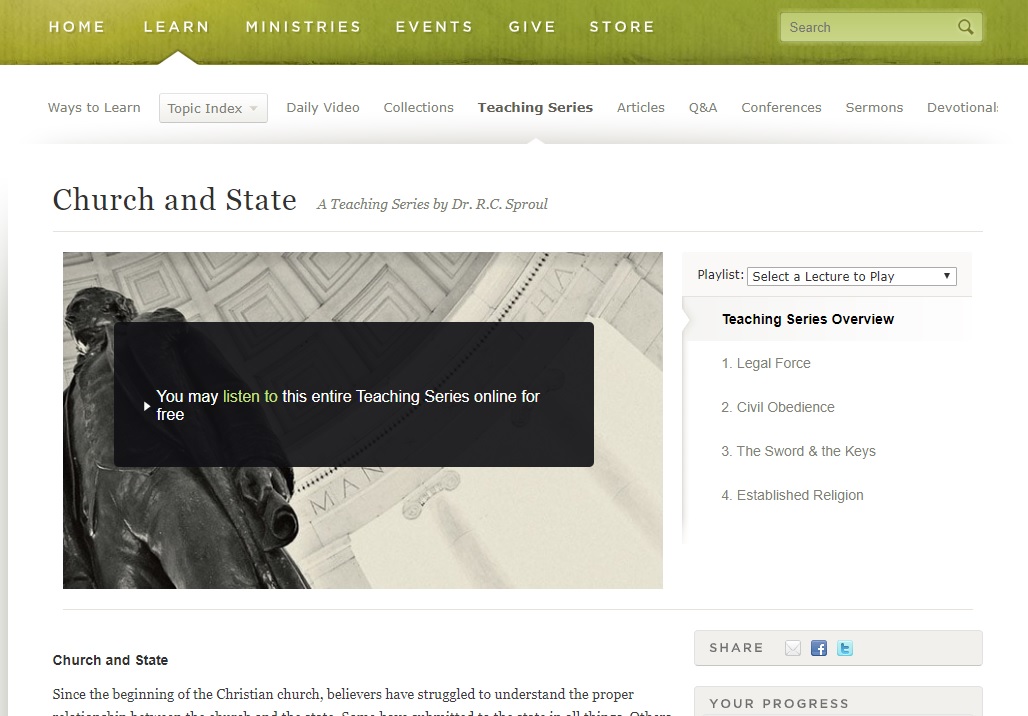Belated Happy New Year, everyone! 2020 is a fresh start, and another opportunity to “grow in the grace and knowledge of our Lord and Savior Jesus Christ” for all of us (2 Peter 3:18).
2020 is also an election year in Ghana (and in the USA) so we will be hearing a LOT about politics and voting. As Christians, how ought we to vote? No, before that, how ought we to think about and relate to the government? In fact, what is the government in the first place?
Here to the rescue comes this lesson series from Ligonier Ministries and the late RC Sproul: Church and State.

Sproul first lays a thorough background on what the government is, who established it, what its functions are and what the church’s relationship to the government should be.
He also deals extensively with some of the problems facing the church in America today. As Ghanaian Christians, we don’t have to deal directly with the same social legal issues facing the American church, but the principles of church and government are universal, so it is a great primer on all the relevant issues.
Furthermore, it would be blindly optimistic of us to think that we won’t eventually face the same social and governmental pressures our counterparts in other countries are currently going through so it’s good to learn more about global trends, if nothing else because it lets you follow the news more accurately.
One lesson I really enjoyed was chapter 4, “Established Religion.” That’s where Sproul deals with the history of the separation of church and state in America. It is very interesting history with lessons for all of us in how governmental involvement in religion frequently leads to oppression and suppression, but it’s also the least relevant to the Ghanaian context. But in this election cycle in America I predict you will hear a lot of ‘separation of church and state’ talk being bandied about, so it’s good to know what it does and doesn’t mean so you can correct people (kindly) and follow arguments intelligently.
Ideally I would do a follow up post analyzing the Ghanaian constitution to see what it has to say about religion and also write another post about how we should think and feel about the new “National Cathedral” under construction, but I don’t want to lie to you and say I will do it. Just listen to these for now and I’ll see you when God wills it. Adieu!


Thanks for sharing Sproul’s material.
Thanks for reading, Agnes!